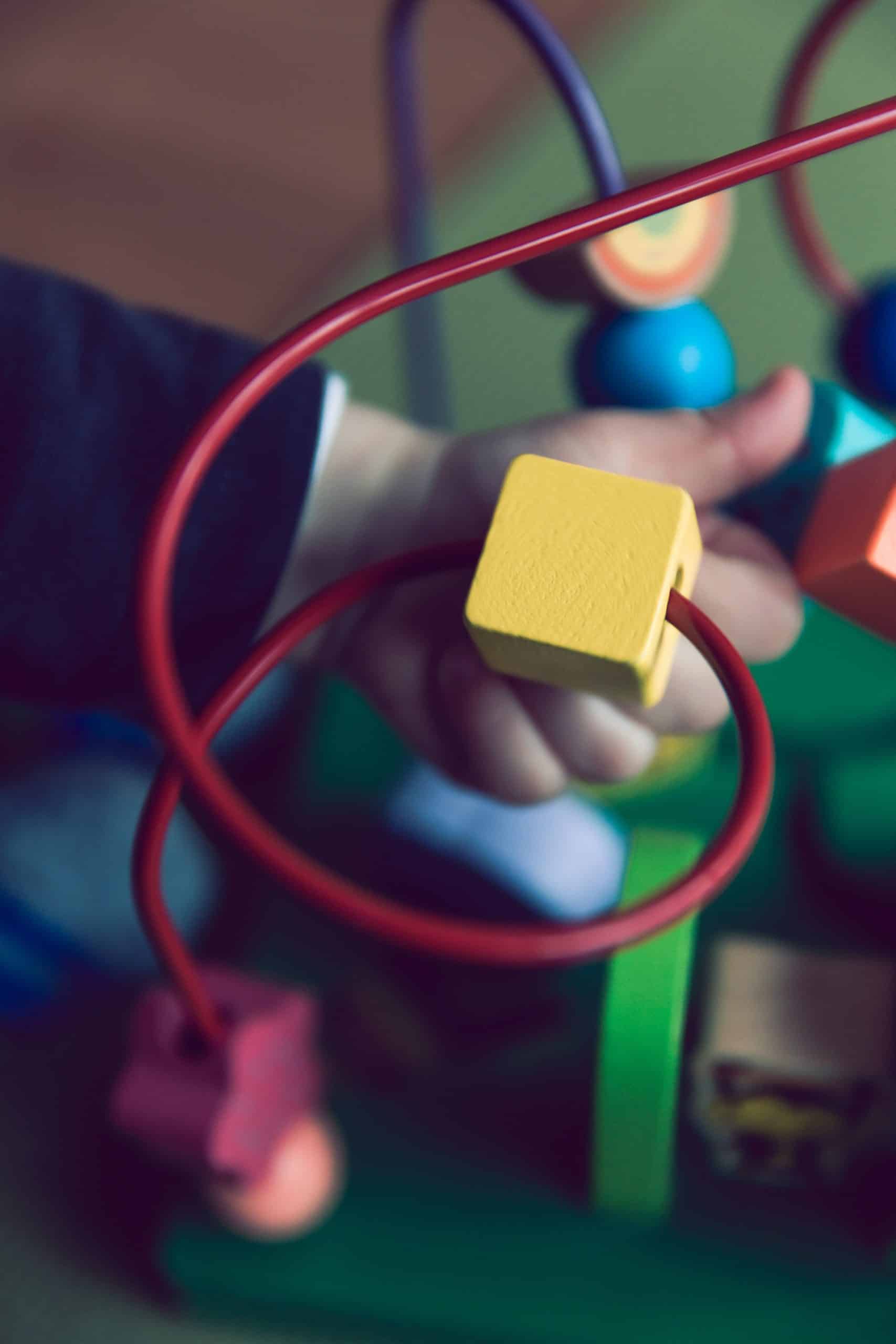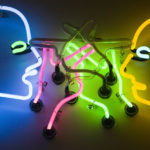The Biggest Problem in Learning Effectively and Memorizing Tons of Information

Many people dream of having a fantastic memory. Who can blame them! Being able to recall information on a whim seems to be the hallmark of every genius.
Yet, not many get close to this lofty goal. In truth, barely a handful of people acquire even decent expertise in their field of interest.
The reasons are plenty, and everyone seems to have their own explanations. Some blame disinterest and apathy of learners, while others claim that our brains aren't created to hold significant amounts of information. While I can't offer any advice in this article for dealing with the former, I can help you with the latter.
Let's see what the biggest problem in learning effectively and memorizing tons of information is and how to overcome it.
How Much Information Can We Possibly Remember?
Many people are under the impression that the capacity of our memory is the biggest problem in learning effectively. That's a myth. Unfortunately, if you try to google the answer to how much we can remember, you will get information that is outdated and doesn't reflect the state of our current knowledge.
That's why I will try to give you a number based on my research.
Previous studies about the capacity of our memory
A recent study from 2009 published by Azevedo and colleagues estimated that there approximately 86 billion neurons in the human brain. We also know that each neuron forms about 1,000 connections to other neurons, amounting to more than an eighty-six trillion connections. Neurons combine so that each one helps with many memories at a time. At the same time, a couple of years ago, scientists from the Salk Institute discovered that instead of 3 synapse sizes, as we previously believed, there are 26 discrete sizes.
They can change over a span of a few minutes, meaning that the brain might have a far greater capacity for storing information than previously thought.
In the past, professor Paul Reber from Northwestern University, who at the time believed there were about one billion neurons in the brain, estimated our brain's memory capacity at about 1,5 petabytes.
So what happens if we include the information mentioned above?
We would arrive at the number closer to 215 petabytes, and that is without taking into consideration additional synapse sizes. If we include 23 of the newly discovered synapse sizes, knowing that in computer terms, this value corresponds to about 4.7 "bits" of information per synapse, we will get about 860 petabytes.
One petabyte is 10^15 bytes of digital information.
As you can see, that's a scary number. However, it tells us one important thing.
Your memory's capacity is not what's holding you back. You could learn a new piece of information every second of your life and live to be 500 years old, and you wouldn't even scrape the surface of what's possible.
A Great Example of the Vast Capacity of Our Memory

There is a good chance you've heard of Kim Peek. He was a savant and the inspiration for the character Raymond Babbitt in the movie Rain Man. Many sources claim that he could memorize between 95-98% of almost any book by reading it in about 1 hour. According to The Times newspaper, he could accurately recall the contents of at least 12,000 books.
Is there any exaggeration in his feats? Highly unlikely. There are lots of videos on YouTube that showcase his fantastic memory. Here is an excellent documentary about him. Well worth your time.
Of course, it's easy to dismiss what he was capable of because of being autistic. Nevertheless, I think that what was unusual was his ability to access all the information, not how much he remembered.
Other Problems in Learning Effectively That I Will Omit
Before I get to the meat of the matter, I want you to know that other common learning obstacles may stand in your way.
The most important of them being:
- optimizing your reviews
- dealing with information overload
Why have I decided to leave them off? Truth be told, if you used spaced repetition software, you could ameliorate most of these pains. If you think you don't need these programs then, no offense, but you're like one of those guys who think they are at the nudist beach only to wake up naked at a local playground when their acid wears off. In other words, — you might be a tiny bit delusional.
Read more: Here Is Why Most Spaced Repetition Apps Don’t Work and How to Fix It
What's the Biggest Problem in Learning Effectively?
Remembering is supposed to increase our efficiency in dealing with situations that occur in our lives.
Think about something as simple as seeing a person with a knife. It's doubtful that your reaction would be anything else than fleeing like a challenged dodo bird.
In other words, in the perfect world, certain situations or information should trigger our pre-created scripts as a response.
For that reason,
the biggest problem in learning effectively is our inability to connect information into meaningful models (i.e., schemas), which can be accessed easily.
Notice that it doesn't matter how much you try to cling to different information. Most of them fade into nothingness after a relatively short time.
So the real question is, how should you use your memory capacity to remember different information you confront to increase your efficiency with dealing with those situations.
What's Required for a Skill to Be Used?




Photo by Markus Spiske on Unsplash
Three things are required for a skill to be used or a behavior to occur (Fogg 2009):
- 1Motivation
- 2Ability
- 3A trigger
1. Motivation
In our case, I assume that you're not plagued by apathy, and you want to use and apply your knowledge. That leaves us with the remaining two requirements.
2. Ability
Ability can be understood as either knowledge, i.e., possessing the right information or psychomotor skills. I have argued that you can't think effectively without the right information. And no — being able to google something doesn't count. Failure to meet this condition will lead you to build automatic responses based on random pieces of information. As a result, both the quality of your thinking and its effects will be subpar. Garbage in, garbage out.
Read more: The Magnet Theory — Why Deep Understanding And Problem-Solving Starts With Memorization.
3. Trigger
A trigger can be understood by one or more things that set off your ability.
What can be a trigger?
Almost everything can be the trigger. However, they are based on a combination of one of the five senses (sight, sound, smell, touch, and taste) and emotional state.
The problem is that not everything should act as a trigger. You don't want to be standing in an elevator and release your inner surgeon. Nor do you want to sit on the beach and suddenly recall how to program in Python. Triggers should be perfectly tied to a given informational set.
There is one more element missing to understand these interrelations fully.
How Is Our Knowledge Organized?
If you want to learn how to overcome the biggest problem in learning effectively, you must first understand the basics of how our knowledge is organized.
The schema theory is probably the best way to do it.
The Schema theory claims that what we currently remember is affected by our background knowledge (i.e., what we already know). In other words, our prior knowledge can significantly influence our current knowledge.
"According to this theory, the knowledge we have stored in memory is organized as a set of schemas, or knowledge structures, which represent generic knowledge about objects, situations, events, or actions that have been acquired from past experience."
"Schemas represent all kinds of generic knowledge from simple knowledge, such as the shape of the letter ``A'', for example, to more complex knowledge such as knowledge about political ideologies or astrophysics. Like the action schemas, knowledge schemas may be linked together into related sets, with superordinate and subordinate schemas. So, for example, the schema for ``table'' would be linked to schemas for ``furniture'', ``rooms'', and ``houses''.
A schema has slots that may be filled with fixed compulsory values, or with variable optional values. A schema for a boat would have ``boats'' as a fixed value, but has ``oars'' and ``engine'' as variable values.
Schemas also supply default values. These are the most probable or typical values. If you are thinking about some particular boat, and you cannot remember the color of the sails, the boat schema might supply the default value ``white'' as being the most probable value to fill the color slot.
``Schema'' is used as a general term to cover all kinds of general knowledge." - Gillian Cohen - Memory in the Real World
`Schema'' is used as a general term to cover all kinds of general knowledge. However, we can also differentiate more specified versions of schema which are called scripts.
Scripts consist of general knowledge about particular kinds of events, or frames, which consist of knowledge about the properties of particular objects or locations (Cohen).
How to Overcome the Biggest Problem in Learning Effectively
1. Do not learn isolated pieces of information




Photo by Clint Adair on Unsplash
My quest to become competent in lots of different domains started many moons ago. What I couldn't figure out for a long time was why I regularly failed to recall information I previously memorized. It didn't matter if I relied on mnemonics or spaced repetition software. A couple of weeks passed, and all the knowledge evaporated. It took me much time to understand that isolated pieces of information are nonsensical to the brain and have little to no practical value.
An example of fallacious reasoning based on isolated bits of information
In one of our discussions my son's nursery teachers mentioned fleetingly that if a child suffers from a persistent cough, it's undoubtedly a sign of parasitic infection.
Can it be true?
Absolutely. Some intestinal parasites (e.g., Ascaris) can lay eggs that might end up in your lungs. We also know some species of parasites that can be found exclusively in the lungs. However, does one piece of information warrant such a diagnosis? Absolutely not.
Dozens of things can cause a cough. Saying that it's X or Y based on one piece of information doesn't have much sense (or it's plain stupid).
For example, if it was a parasitic infection, then in this region of the world, there is a chance it would rather be some intestinal parasite whose eggs migrated to lungs. In that case, way before the occurrence of cough, we could notice some other symptoms, e.g., gastric discomfort, rash, diarrhea, etc. Even then, we would need to run further tests to narrow down possible causes.
Conclusions based on isolated pieces of information are almost always fallacious.
2. Provide relevancy to the information you learn
My past self was not only failing to understand that remembering isolated pieces of information is useless. I also couldn't wrap my head around one simple fact.
Abstract information gets forgotten amazingly fast
If this abstract information is also isolated, then the forgetting will happen almost immediately.
Your goal as a learner is to make this information as useful as it's possible. It should be a part of your reality. We didn't evolve to remember rubbish information. Whatever we learned or remembered was usually necessary for our survival. This was and is true for many things like remembering what not to eat, how to perform certain skills to earn your living, etc.
Whenever I teach medical professionals, they are always baffled why I remember some seemingly trivial information. The disappointingly dull answer is - I brute-force myself to make relevant connections.
Example - biophotons:
When I was learning about biophotons, one of the things I learned is that their emission is a type of bioluminescence. It can theoretically be triggered by reactive oxygen species. That led to a forced, but funny (for me!) conclusion that I turned into a flashcard:
Q: How can I use biophotons to light up my room?
A: eat lots of mercury (= inflammation)
The logic being that this action would trigger a massive inflammatory reaction. Is it exactly true? Not exactly, but it helped to cement the concept in my head, and this is what truly counts.
Read more: How Pretending To Be An Assassin Can Help You Remember Poisons In Food Better.
3. Categorize your knowledge into relevant scripts
You already know that your abilities need triggers. Hence, your goal is to categorize your knowledge into relevant scripts which should get triggered under the right circumstances. Even then, it's easy to overdo it by trying to squeeze too much information into one script, which leads to cue overload.
Cue overload is the phenomenon wherein the slower and less accurate recall is caused by too many associative links (the fan effect; Anderson, 1983a).
Example - lie detection:
Many people, quite naively believe that one gesture is enough to spot a liar — quite the contrary. Real experts usually analyze body language based on clusters of different gestures and cues.
In that case, your ability, i.e., analyzing body language or getting suspicious, would be triggered by a specific combination of cues. Without those cues, your abilities won't get activated. It's not like your amazing skills will be activated around the clock.
It's funny to hear some body language experts claiming that their skills are like the curse, and they can't seem to turn it off. I can almost see them watching some low-budget erotic movie thinking, "hmm, judging by the cues he is not a real plumber, and he didn't come here to unclog the pipes".
4. Create many different scripts for every piece of information




Any kind of information is by its nature multi-faceted. You can't expect one script to give you a complete picture.
You should do your best to combine those different facets into many scripts, whereas each one of them presents you with a different perspective. The more scripts you create, the more complete and original your thinking will be.
The Biggest Problem in Learning Effectively - Summary
The truth is that you can be an expert in many different areas (or at least very competent) if you only learn how to acquire information and turn it into relevant scripts. Unfortunately, no amount of reading will get you close enough to your goal. It's all about the conscious effort and following the plan.
How to Learn Effectively and Memorize a Lot
- Don't learn isolated information
- Provide relevancy to the information you learn
- Categorize your knowledge into relevant schemas that get triggered by the right cues
- Create many different scripts for every piece of information
Do you want to share your own experience with memorizing a lot? Leave me a comment!
Done reading? Time to learn!
Reading articles online is a great way to expand your knowledge. However, the sad thing is that after barely 1 day, we tend to forget most of the things we have read.
I am on the mission to change it. I have created over 30 flashcards that you can download to truly learn information from this article. It's enough to download ANKI, and you're good to go.











Hey, Bartosz!
Could you elaborate more on how to turn knowledge into scripts?
Because I’ve done some further reading on it (great topic, by the way), but I can’t seem to understand how to make them.
If the explanation is too lengthy for a comment, could you please indicate some resources on how to do it?
Thanks!
Hi Daniel! I will have to write a separate article on that topic. I can’t really refer you to any other source since I don’t really know any.
My other article on the Magnet Theory is probably the closest thing, for now, that explains scripts: http://universeofmemory.com/magnet-theory-deep-understanding/